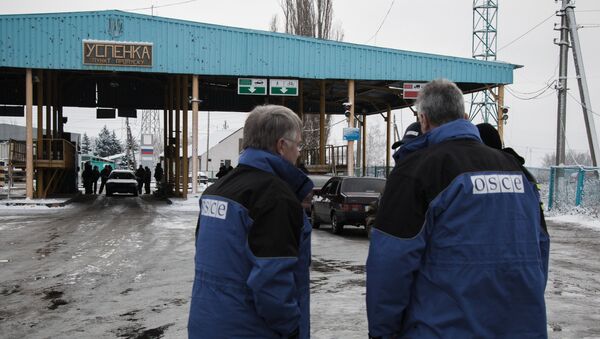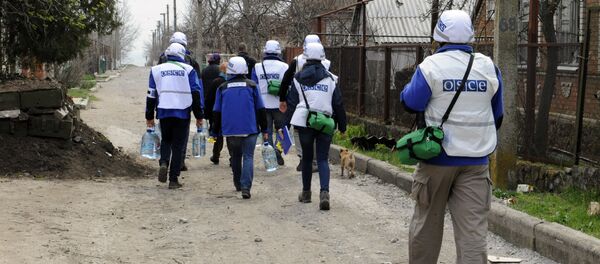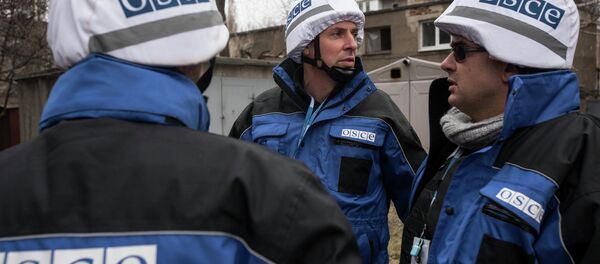The OSCE has been tasked with monitoring the implementation of the Minsk deal provisions on settling the conflict between Kiev and the pro-independence militias in the country's east. The Minsk accords include a full ceasefire, a weapons withdrawal from the line of contact, an all-for-all prisoner exchange, constitutional reforms, including a decentralization of power in the country, and granting special status to the Donetsk and Luhansk regions.
"This must stop if the SMM is to be able to help the sides achieve a sustainable ceasefire. We cannot do our job if those threatening SMM monitors go unpunished. Impunity invites even more threats and attacks. The sides must fully honor the commitments undertaken in Minsk, especially to cease fire and withdraw weapons," Hug said.
"To conduct meaningful and effective monitoring and reporting, the SMM needs freedom of movement. However, our freedom of movement generally remains problematic, particularly in areas not under government control," Hug said.
The Ukrainian conflict began when Kiev launched a special military operation in Ukraine’s southeast in April 2014, after local residents refused to recognize the new Ukrainian authorities that came to power as a result of a coup.




